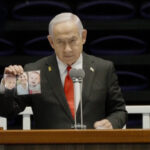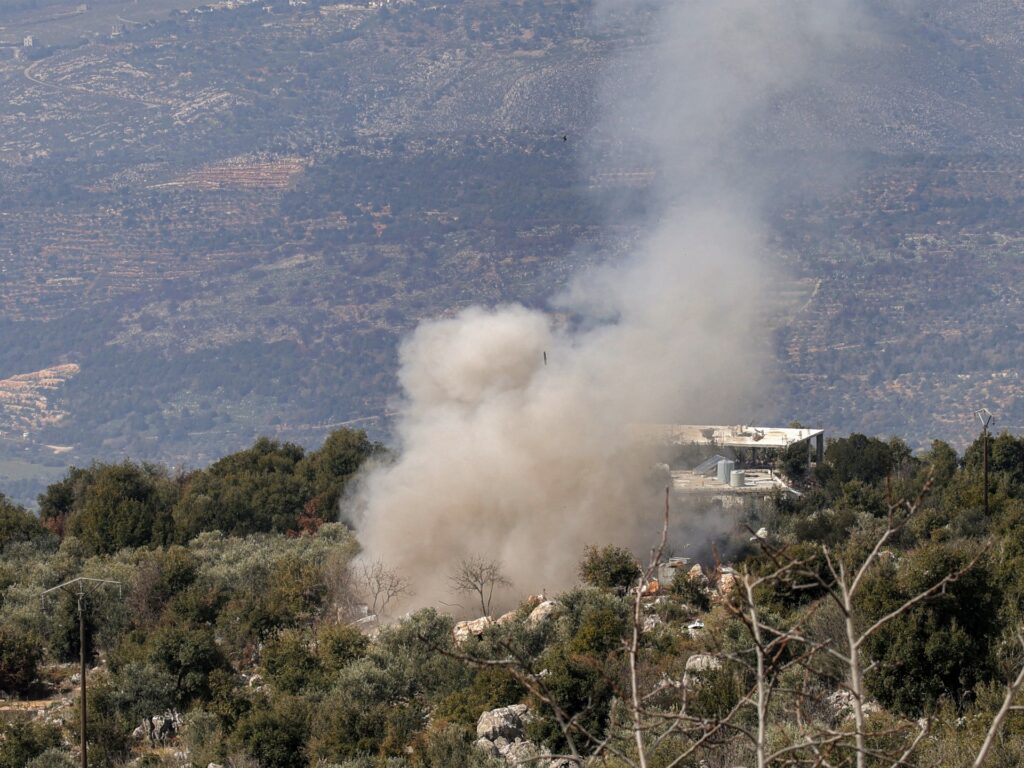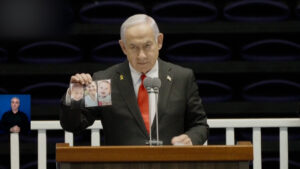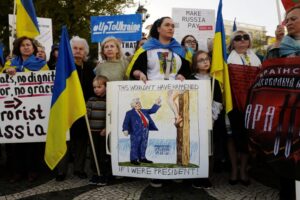
Israel pulling out most forces according to ceasefire terms, but refusal to leave some border areas spreads uncertainty.
Israel is pulling its forces out of southern Lebanon as the deadline for their withdrawal under a fragile ceasefire deal has passed.
The Israeli military continued a pullback on Tuesday morning for the second day. However, while the majority of its forces will meet the revised deadline agreed under the ceasefire deal with Hezbollah, Israel has said it will remain in five strategic locations, warning it is ready to resume hostilities.
Lebanon’s army, which under the deal should deploy across the south of the country as Israeli forces vacate, reported on Tuesday morning that it was present in about a dozen villages and border areas.
Israeli military spokesperson Nadav Shoshani confirmed that five hilltop locations will be maintained to provide vantage points and protection for communities in northern Israel.
He claimed the “temporary measure” was approved by the United States-led body monitoring the ceasefire.
Lebanese President Joseph Aoun had raised concerns that a complete withdrawal would not be achieved by the deadline, saying “the Israeli enemy cannot be trusted”.
Advertisement
On Tuesday, a spokesperson for his office said Lebanon would consider any remaining Israeli presence on its lands an occupation, and that Beirut has the right to use all means to ensure a full withdrawal.
Lebanon is also set to ask the United Nations Security Council to force Israel to comply fully with the ceasefire agreement.
However, Israeli Defence Minister Israel Katz confirmed that the five locations would be maintained to guard against any ceasefire violations by Hezbollah. He added that the army has erected new posts on the Israeli side of the border and sent reinforcements.
“We are determined to provide full security to every northern community,” Katz said.
Hezbollah and Israel agreed on the ceasefire in November, following months of cross-border hostilities and war, as the Iran-linked Lebanese group reacted to Israel’s war in Gaza with rocket attacks on northern Israel, which were reciprocated by fire from the Israeli side.
Israel then launched a ground incursion and bombardments that killed more than 4,000 people across Lebanon, according to the Ministry of Public Health.
Under the deal, brokered by the United States and France, Lebanon’s military was to deploy in the south of the country alongside UN peacekeepers, as the Israeli army withdrew over a 60-day period.
Hezbollah was to pull back north of the Litani River, about 30km (18.6 miles) from the border, and dismantle its remaining military infrastructure there.
The initial deadline for the Israeli withdrawal in late January was extended to February 18.
Advertisement
However, on Monday, Israel’s military announced that it would maintain the five locations along the border to “continue to defend our residents and to make sure there’s no immediate threat”.
Fragile deal
The refusal by Israel to withdraw all of its forces confers more uncertainty over the fragile ceasefire deal.
Israel has been engaged in sporadic attacks that it says target Hezbollah forces, in violation of the terms of the ceasefire. The Lebanese group has denied accusations against it.
The Armed Conflict Location and Event Data (ACLED) project recorded 330 air raids and shellings carried out by Israel between November 27 and January 10, and 260 property destructions.
Authorities estimate reconstruction costs could reach more than $10bn, while some 100,000 people remain internally displaced, according to UN figures.
The authorities in Lebanon on Monday rejected any extension of the withdrawal period and urged the sponsors of the deal to pressure Israel.
Prime Minister Benjamin Netanyahu has insisted that Israel will do what it has to in order to “enforce” the ceasefire, declaring that “Hezbollah must be disarmed”.











More Stories
Future of AI in focus at Web Summit Qatar 2025
World reacts to Merz’ German election win amid warnings on far-right surge
Video: Netanyahu heckled while showing photos of Bibas family